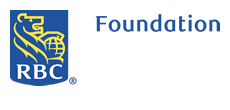Go easy on raking this fall, and leave the leaves on the ground
National conservation group encourages people to think differently about their own lawns and backyards
The changing colour of leaves is one of the most beautiful aspects of the fall season, but it comes with an onerous task: raking them up once they’ve fallen. The Nature Conservancy of Canada (NCC), however, has some green advice for people wishing to avoid back-breaking yard work: leave a layer or two of leaves on the ground. And if someone accuses you of being lazy, you can say you are actually helping nature!
The not-for-profit land conservation organization says leaving fallen leaves in your yard is a small act of nature conservation that can support backyard biodiversity in many ways. While some butterflies travel to warmer destinations, many native insects, including pollinators and other backyard wildlife, hibernate over the winter and can use a little neighbourly help.
Sam Knight, manager of the Weston Family Science Program with NCC, says leaves can provide important over-wintering habitat for many species. “Many animals, such as toads, frogs and some moths and butterflies, have adapted to hibernate in the leaf litter,” says Knight. “The leaves provide an insulating blanket, which can help protect these animals from the cold and temperature fluctuations during the winter.”
Another benefit of not raking your leaves is soil improvement. Knight points out that as leaves break down, they transform into a natural mulch, which helps enrich the soil and suppress weeds. Thick piles of leaves can impact the growth of grass and other plants come spring, but leaving a light covering can improve the health of our gardens and lawns.
As the leaves break down, some of their carbon also gets stored in the soil. “While it’s great for cities to provide collection programs to compost leaves, we might as well allow for the leaves to naturally break down in our yards and fertilize our lawns,” says Knight.
And it’s not just leaves that are important for backyard wildlife during the winter. “Plant stalks and dead branches also provide critical over-wintering habitat for many species,” says Knight. “By cleaning up our yards and gardens entirely, we are removing important over-wintering habitats for native wildlife in our communities.
“Birds can also benefit from your garden during the winter. Fruits and seeds left on flowers and shrubs are a crucial food source that sustains many songbirds during the winter, including goldfinches, jays and chickadees. Providing food and shelter for our native birds and insects is just as important during the fall and winter as the spring and summer.”
With about 80 per cent of Canadians living in towns and cities, backyard biodiversity is becoming increasingly important. “Nature conservation isn’t just about conserving large intact pieces of wilderness, it’s about supporting nature on all scales, down to the collective action we can all take in our own backyards,” says Knight.
Encouraging and learning about nature around our homes can also help build a connection to our natural world. “There is growing evidence that having a relationship with nature is critical for our health and well-being,” says Knight. “As Canadians, we have some of the planet’s last areas of wilderness, but for many of us and our children, finding that connection to nature starts at home.”
Facts
• Nature in urban areas can play a role in supporting biodiversity that has been lost in surrounding areas.
• Leaves can break down in your yard like they do in a forest. Consider them free fertilizer and nutrients for your lawn.
• Don’t leave huge layers of leaves on your lawn because it will smother and damage your lawn; a light covering does best.
• Try it out by leaving a layer or two of leaves on a small section of your lawn. You will notice the leaves break down organically like they do in a forest each year.
• If you still want to rake up your leaves, tuck some in your flower beds, vegetable gardens or around the roots of trees and shrubs to help protect them from the freeze-thaw cycle.
• If you have storm drains and gutters nearby, rake your leaves to avoid a soggy mess on sidewalks, which can freeze and be hazardous. Pick up pine needles as they are very acidic and can damage your lawn and roof.
Learn More
Follow us on on X (formerly Twitter): x.com/NCC_CNC | x.com/NCC_CNCMedia
Find us on Facebook
- 30 -




